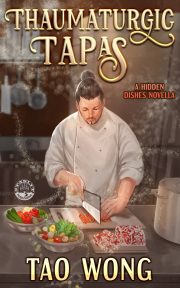How Not to Read Like a Beta Reader
by Kate Heartfield
 A few distinct kinds of reading come with the job of being a writer: research, market research, reading for awards ballots and contest juries, reading for sheer pleasure.
A few distinct kinds of reading come with the job of being a writer: research, market research, reading for awards ballots and contest juries, reading for sheer pleasure.
And then there’s beta reading or critiquing.
Reading other writers’ work at the draft stage is essential, for two reasons.
First: karma. If I want to get feedback on my own work, and I do, then I have to critique for others. Sometimes it’s a rules-bound one-for-one exchange, but more often we just kind of pay it forward.
Second: analysis. Critiquing helps me break apart the structures of novels, which has taught me a great deal about how novels work.
It requires going one step deeper than the kind of analysis I do to review a book, because analysis and feedback are different things. Analysis is for potential readers; feedback is for the author. In a review, I might note that the characters felt distant or wooden. In a critique, I might point out examples of narrative distance in the prose, a lack of sensory detail, or moments where internal monologue might help heighten reader experience.
If reading to review forces me to take one step back from the text, reading to critique forces me to take two. When I beta read, I’m not preparing an argument for why a book’s choices work or don’t work; I’m helping the writer understand the effect of the choices she made, even the subconscious ones.
Beta reading is reading at arm’s length.
And for the most part, reading to critique means reading carefully and to the end. It can feel, sometimes, like studying for a test.
There is also always the possibility that a book will be offensive. For marginalized readers, beta reads can be an exhausting task, even if the writer didn’t ask for a “sensitivity read.” The writer may not even have a clue that they’ve managed to erase a subset of humanity or perpetuate a nasty trope. When I’m beta reading for a writer I don’t know very well, I am reading with my emotional guards up for self-protection. If I encounter a rape scene that serves a man’s redemption arc, I can’t just throw the book across the room. If I choose not to finish the book, I have to find some way to tell that to the writer. And if I choose to still offer a critique, I have to do the emotional work of explaining the issue.
I can’t afford to just enjoy the story. I have to think about what I’m enjoying, and why, so I can spot opportunities to build on what the novel is doing well. If I’m reading for pleasure, I can set aside the flaws in a book I love and just glory in fannish adoration. (Writers have their personal problematic faves like everyone else.) I can’t do that for a writer friend, even if I am also a fan of that writer friend.
All of that requires getting into a particular headspace. Living in that headspace for months at a time changes my relationship to reading. In that headspace, I approach novels guardedly, and keep a notebook running in my head. I have less patience with a new-to-me writer or with a book that takes some effort to get into, because I am subconsciously trying to stop myself from getting swept away.
The beta reader headspace prevents me from falling in love.
Experiencing awe and wonder, as a reader, is an important part of the job of being a writer. If beloved books are the stars that chart a writer’s course, adding a new one is like spinning the orrery. Falling in love with a new book every so often is how we keep our art from stagnating.
So I’ve made myself a set of rules for beta reading.
First, I never beta read two books back-to-back, without pausing to read for pleasure in between.
Second, I make sure to have some new-to-me writers in the rotation, particularly writers whose backgrounds or genres are not very familiar to me. When my brain encounters new styles and new subjects, it’s less likely to run on the beta reading rut.
Third, I also keep beloved writers in the rotation, no matter how much I want to get to the new-and-hot stack on my bedside table. There are some writers – Terry Pratchett, for one – whose books will always break me out of the beta reading headspace, land me squarely back into fannishness and remind me what it feels like to fall in love. I mean, you just try to critique Granny Weatherwax. Just try.
•••
Kate Heartfield is a journalist and fiction writer in Ottawa, Canada. Her short stories have appeared in places such as Strange Horizons, Escape Pod and Daily Science Fiction. Her novella “The Course of True Love” was published in 2016 by Abaddon Books, part of the collection Monstrous Little Voices: New Tales from Shakespeare’s Fantasy World. She has a steampunk story in the 2016 anthology Clockwork Canada from Exile Editions, and a science fiction story in the May 2016 issue of Lackington’s. She is an active member of SFWA, the Codex writers group and Ottawa’s East Block Irregulars. She is represented by Jennie Goloboy of Red Sofa Literary.


